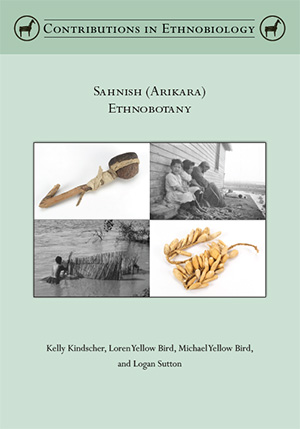Autumn 2020
Ethnobiology Newsletter

Society of Ethnobiology Member Newsletter
Letter from the PresidentHello all, from a burning and smokey West Coast, I’m thinking of you all this week as many head back into teaching, if not into an actual classroom. I’m grateful for our community—folks who understand the climate crisis and recognize the value of Indigenous knowledge and traditional practices to manage landscapes, past and present and future. We’d like to extend our help to Indigenous communities in need at this time through our Rapid Assistance Fund (more below). We have some exciting and important opportunities for members to share their time, talents, and voices—please see below for calls for: Board position nominations; contributions to the shared resources of our Decolonizing Ethnobiology page; and the Forage! Blog. With love, and in solidarity, |
RAPID ASSISTANCE FUND FOR INDIGENOUS COMMUNITIES & INDIVIDUALS IN NEED
The Society of Ethnobiology remains committed to the purposes of social justice and social equality. We recognize there is much work to be done. If you or your community are in need of assistance, in a form that relates to people and the environments they live and work in, please consider applying for Rapid Assistance Funds here.
Decolonizing Ethnobiology Resources
To continue to follow up on our BLM statement and show up for our colleagues, The Society of Ethnobiology has reinvigorated our Decolonizing Ethnobiology Resources located free, on our website. The website consists of readings, podcasts, and @handles to follow of voices actively working towards equity. Our purpose here is to reduce any erasure of our colonial past while engaging with the tools and methods in relationship-building and decolonizing academia. Please send any questions/comments and resource suggestions to socialmedia@ethnobiology.org
Open Elected Positions
Elections will take place this fall for three Board positions. Please nominate yourself or an ethnobiologist you know for:
- President-Elect (2 yr term, followed by 2 yrs as President)
- Secretary (3 yr term)
- Promotion and Outreach Coordinator: Membership and Development (3 yr term)
For more details on these opportunities to serve your SoE community, please visit our Organizational Structure and Current Board of Directors web pages.
NEW Contributions in Ethnobiology Volume Published:
SAHNISH (ARIKARA) ETHNOBOTANY
 |
The Contributions in Ethnobiology editorial team is pleased to announce the publication of the sixth book in the series, Sahnish (Arikara) Ethnbotany, by Kelly Kindscher, Loren Yellow Bird, Michael Yellow Bird, and Logan Sutton. This 223-page, full-color volume describes the traditional use of wild plants among the Arikara (Sahnish) for food, medicine, craft, and other uses. Although based primarily on the work of Melvin Gilmore, who recorded Arikara ethnobotany from 1916 to 1935, the present volume features updated modern botanical nomenclature, contemporary spelling, and interpretation of Arikara plant names, as well as color photographs and range maps of each species. Print copies can be ordered from Amazon and free digital copies can be downloaded from the Society's website. |
Code of Conduct Adopted
We are pleased to announce that the Draft Code of Conduct passed in a recent Society-wide voting opportunity! The Ethics and Advocacy Committee thanks all who brought their voices and perspectives to the process, and we will continue to listen and update as needed.
Search for Awards Coordinator and Contributions Co-Editor
We are actively looking for an Awards Coordinator (3 yr position; opportunity to work closely with Conference Coordinator) and Contributions Co-Editor to join the Editorial Team (Marsha Bogar Quinlan and Sarah Walshaw). Contact president@ethnobiology.org.
Call for Forage! Blog Posts
Forage! is the SoE’s venue for gathering ideas and knowledge and for fostering the ethnobiological community and movements. We encourage members to submit content from all expressive dimensions including intellectual, creative, and activist ones (e.g., art, stories, literature, poetry, pictures). Some example posts might include:
- Interviewing a fellow ethnobiologist, mentor, or scholar
- Local ecological knowledge gained this past summer
- Reflections on research or outreach experiences
- Foraging tips, guides, and recipes
- Book reviews
- Video or photo blogs
- Sharing a new publication, book, or video
- Musings on ethnobiological ideas or news
- For more inspiration check out previous Forage! posts
We invite all SoE members, students, and the general public to submit blog posts here: forage@ethnobiology.org. We welcome submissions at any time or you can schedule a blog post using our doodle sign-up poll: https://doodle.com/poll/7n3r6f9vyaqp4icx
SoE Student Twitter Take-Over
Are you a student who wants to engage more with the diverse membership of the Society of Ethnobiology? Do you want to show your own perspective of what is ethnobiology? NOW IS YOUR CHANCE! Fill out the survey to schedule your week now: https://buff.ly/3hTHGpA
|
Do you have anything you would like the community of Ethnobiologists to know? Would you like to share job postings, events, news articles, etc.? Please email socialmedia@ethnobiology.org with any comments, concerns, or additions. Society of Ethnobiology To opt-out of all future mailings from us, click here. |